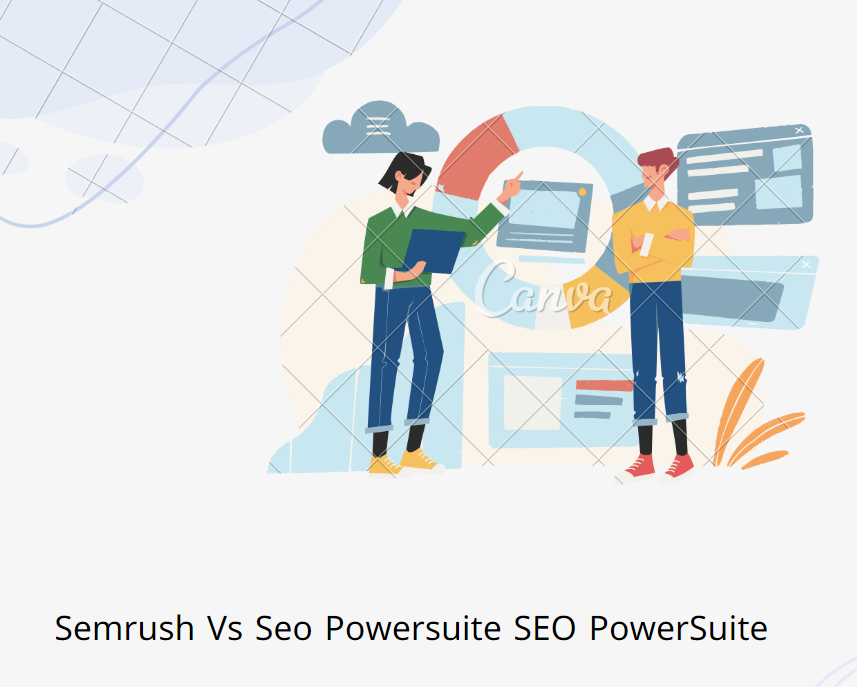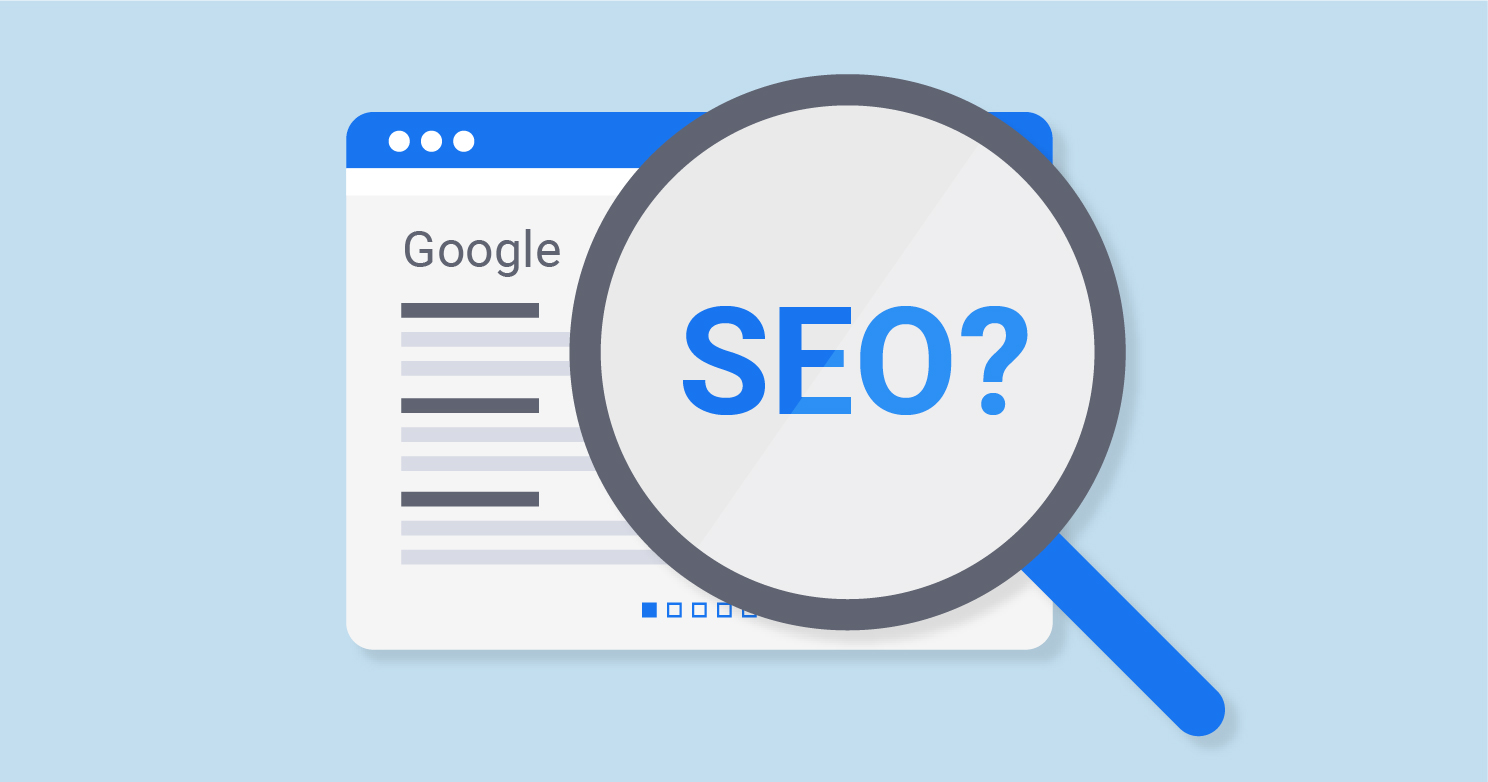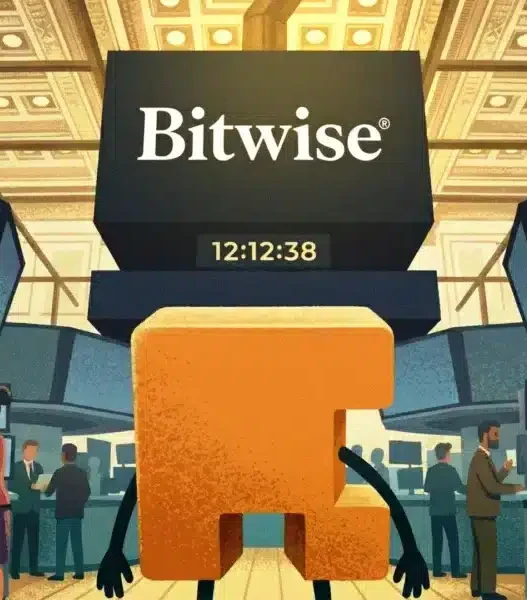est SEO Predictions in 2024 21 Test SEOs need to forget about writing “SEO-optimized” content and instead focus on writing helpful content for their readers if they want to rank high on Google
From the explosion of generative AI – first from ChatGPT and then Bard running to catch up.
The Google updates that were unrelenting.
And Universal Analytics finally being deprecated and switched off, with GA4 being a steep learning curve for anyone who wasn’t prepared in advance.
In 2024, as the dust settles around the introduction of gen AI, the predominant focus is going to be embracing the new tools to help as an assistant for workflow and productivity. For those who don’t take the time to experiment with AI and learn how to write prompts, there is a real threat of being left behind.
We don’t see AI replacing good quality writers or SEO, but we do see AI as an opportunity to enhance and augment what we already do.
What SEO Pros Should Focus On In 2024
As SEO is all about collaboration and sharing knowledge, we turned to some of the best minds in the industry to get their thoughts on where the industry is going and what might happen next.
- Kevin Indig, Growth Advisor:
If Google’s frenzied algorithm updates in 2023 have shown us one thing, it’s that the bar for content and domain quality has risen faster than we thought. In 2024, we need to find ways to scale the production of high-quality content and groom our content portfolio.
The most obvious way is using AI, but we need to significantly increase the output quality and add human input. In some cases, AI might be the wrong content creator, but I think we underestimate how good it can really be.
- Pedro Dias, Technical SEO and Growth Advisor, Visively:
This is a hard question to answer [What SEO pros should focus on in 2024]. Mostly because SEO is so driven by specific problems you need to solve at different levels of an online business. And every business may have different needs depending on the stage they’re in.
But, if I really have to pick a common issue I see across the board, it’s not really related to SEO tactics, or any specific search feature, but related to how SEOs and businesses are often misaligned with their expectations from search.
So, an actionable and practical take on this would mean that SEOs need to close the gap on what their businesses can expect from search and where they are in this path. Then, they need to communicate clearly what needs to be done and why – I’ve recently tweeted/posted on X (Twitter) about the issues around complex prioritization, and the lack of clarity around business-related problem-solving.
I think a lot of SEOs don’t do this well enough – probably because they lack the strategic vision of what the product they work for should look like in a search ecosystem in 2023 – and so, they often hit walls and don’t get the support they’d need to move ahead.
And it doesn’t matter how advanced or good you are at Python or AI, or how knowledgeable you are around specific search niches. If you can’t translate this to “business-related problem solving” speak, you’ll be stuck indefinitely.
- Eli Schwartz, Author Of “Product Led SEO” And Growth Advisor:
With the launch of the generative experience, Google will now be taking the top of the funnel for itself, leaving SEO to the mid-funnel. To be fair, it isn’t really “taking” it; they are just answering what is essentially commoditized information.
To date, Google has only delved into short answers when it could rely on structured data that was more than likely to be accurate.
In this bucket would be topics such as population counts, sports scores, ticker symbols, heads of state, and all other kinds of results that we see today in knowledge graph answers.
Generative results in search mean that SEO moves from the top of the funnel to mid-funnel:
Instead of targeting keywords with the most search volume to hopefully peel off the maximum amount of clicks, SEO efforts will need to be more deliberate to target the right users with the right keywords.
Make sure your content aligns with an actual buyer persona.
Use modifiers on those head keywords you used to target, like “price,” “reviews,” and “features.”
Lastly, write content that compares you to your competitors
- Shelley Walsh, SEO Content Strategist at SEJ and ShellShock:
With so much changing in SEO, now is the time to look at what is fundamental and never changes.
One of the foundations of good marketing is to put the user first.
Recently, it was revealed in Google’s antitrust lawsuit how user clicks are a factor that influences visibility. This highlights that Google does put emphasis on user signals. And why does Google do this – because they know that the user is central to everything.
If you can understand that SEO is structured around making it as frictionless as possible for a user to do what you want them to – then you have the right mindset to build your strategy.
This underlines technical SEO and it underlines creating content that has a reason to exist.
If you understand how a website works, how a search engine works and how users behave online, then connecting the user to the action is common sense. It’s not complicated, but it is really hard to do this well.
Focus on the cross-section of usability, conversion, technical excellence and high-quality content output.
Generative AI tools are changing how the discipline of SEO will be applied, but they can’t change the fundamentals.
Tools are tools and should be treated as such. They can never replace applied knowledge, experience and expertise.
When everything is changing, hold on to what is timeless.
- Jamie Indigo, Senior Technical SEO Lead, DeepCrawl:
Ecommerce SEOs need to look at how Google is changing their role in SERPs. The company no longer wants to be the search engine you use to find the sites with the products – they want to be where you shop for products.
SERPs will continue to cut out category and product listing pages in favor of showing product results directly in SERPs.
“Shop {categoryName}” is likely where your category and product listing page traffic has come from historically. Now “Shop” queries (and many other transactional intent keywords) trigger SERPs powered by Shopping Graph.
Everything from prices, product reviews, seller reviews, multiple images, and down to the last “Buy now click” can be facilitated without leaving Google. Google is using their new Notes feature to cultivate UGC social proof and facilitate quicker conversions.
Organic Shopping results (seen by filtering Search Appearance to Product Results) will continue to gain prominence. This means SEOs need to be the Merchant Center and optimize their feeds.
Some enhancements, like deals, can only be submitted with Free Feeds. Google will continue leveraging feed fields like “Discounts” to create SERP shopping pages that show both organic and paid feed results where that information is available.
Google is likely to extend its learning to other sectors as it improves and “synergizes”.
- Mordi Oberstein, Head of Brand SEO at Wix:
One interesting thing I saw was the huge spike in rating volatility in Q3 2023 (according to the Semrush dataset). When comparing ranking fluctuations from early in the year to previous years, there is a clear deviation from overall trends.
You don’t need to be a data scientist to see this. In the space of four months (really less), we got the August 2023 Core Update, the September 2023 HCU, the October 2023 Spam Update, the October 2023 Core Update, the November 2023 Core Update, and then the November Revisions Update 2023.
The obvious question is: What role does artificial intelligence play in this? Is AI content the reason behind all these fluctuations in the rankings?
Yes and no.
The scenario reminds me of COVID. When the coronavirus hit, the ratings went berserk. Old queries had new intentions, and new queries had to be understood and processed by the algorithm. What is happening now reminds me of that. And I think part of the reason is AI, but I think it goes beyond AI.
Look at some of the things Google has announced recently, from notes [an experimental feature in research labs] to saying they’re trying to reward more content based on direct knowledge to the Perspectives filter and even an extra “E” for expertise in E-E-A-T. .
I’ve been talking about this for years: We don’t appreciate how quickly content consumption trends are changing and how impactful these changes can be. The web is going through a fundamental transformation.
Yes, a big part of that is AI-written content, which opens the floodgates. (I know Google said they don’t target AI content, just low-quality content. However, to quote Animal House, “What’s the difference?”)
But a lot of that comes down to how quickly content trends change. The proof is in the ads I just mentioned and the theme you see within them. Specifically, focusing on information based on actual experience and actual people – not just brands or authors who seem to exist only in the ethers of the Internet.
So what should SEOs focus on in 2024?
The rise of AI has reignited the conversation about what users want from content, how they want to consume it, and how skeptical they should be about it (I’ll tell you this is a big part of the conversation I had with my team at Wix when we were creating content). Regarding the last point, the more specific, precise and targeted the content is, the more consumers will trust it.
Google knows this. And while it’s focused on the great AI race to nothing, I think seeing any lack of growth in Bing’s market share will be taken as a strong signal that AI isn’t what users ultimately want (although it’s probably what shareholders want, So don’t expect it to go anywhere.)
Increased topical analysis, increased relevancy, and increased quality (which, for these purposes, I’m going to define the extent to which content can deliver an authentic experience) will return to Google’s primary focus.
Simply put, Google, as it usually is (I say usually with the AI wars in mind), is focusing on emerging user trends and consumption preferences.
In 2024, I think SEOs should take a step out of the algorithmic bubble and start looking at the content trends that Google itself is focusing on.
- Katie Morton, Senior Managing Editor for Growth, Search Engine Magazine
Adaptability and an evolving strategy are essential in 2024 and beyond.
With the advent of artificial intelligence, the one thing we can all predict between now and the end of time is exponentially faster technological innovation. This will lead to near-constant changes in how we think and work in the SEO industry that will be characterized by – dare I say – disruption.
Although 2023 has been amazing in the number of major algorithm updates Google has made, we haven’t seen anything yet. SEO professionals need to get used to constant algorithm updates.
To stay competitive in the SERPs, SEO professionals and content strategists need to adopt a strategy that includes creating and optimizing multimedia content — that is, content that includes video, audio, and images, in addition to text.
The ability to optimize multimedia content to remain competitive in the SERPs will soon dominate the SEO landscape in a big way.
As AI evolves to improve its ability to create content, it makes sense that Google’s algorithmic AI would improve along with these advances.
As AI becomes increasingly capable of understanding audio, video, and images, Google’s algorithm will get better at indexing and presenting multimedia content accurately. This will add competitive pressure on SEOs stuck in a text-only content environment.
Useful content is king. Google has made it clear that when it comes to content, helpfulness is more important than ever. Users are increasingly listening to and watching content, and marketers are finding that using video increases sales.
With the benefit of multimedia content, coupled with Google’s increasing ability to understand video, audio, and images, it stands to reason that multimedia content will begin to play a larger role in SERPs in 2024.
Google recently announced its multimedia AI model, Gemini:
“Gemini is designed from the ground up for multimedia – thinking seamlessly across text, images, video, audio and code.”
Google promises to integrate Gemini into search, ads, Chrome, and Duet AI.
Using prompts, Gemini can generate code and combine text and images. It can also understand, reason, and provide insights about massive amounts of multimedia data and input.
While Google’s launch demo has been criticized for being contrived rather than a real demo, I think that’s a minor point. Gemini is described as a major advance in large language models (LLMs) and MMLU (massive multi-tasking language understanding).
After its full release, starting with Gemini Pro on December 13, 2023 and sporadic additional edition releases in the coming months in 2024, we’ll have to wait and see if Gemini lives up to the hype.
Gemini’s reputation will likely remain in flux as it is measured against competitors’ progress, and as the AI model continues to learn and learn faster in the wake of its public rollout.
As if that’s not enough to keep you busy, it will also be key to business success to deepen your symbiotic relationships with your marketing, sales, product and web development teams.
In the face of ongoing economic challenges, return on investment (ROI) is crucial. The best SEO professionals have a business strategy locked down. They have a deep understanding of the different revenue streams that feed the different business units they serve, and how to attract those customers organically to maximize revenue.
It will be more important than ever for SEO professionals to work closely with marketing, sales, product managers, and web developers to attract highly qualified leads. User experience (UX), content design, and conversion rate optimization (CRO) will be key to capturing the traffic that SEO professionals bring to business websites and platforms.
The upcoming harsh economic realities of 2024 will require a comprehensive approach to digital strategy – ensuring you not only drive traffic to your website, but also convert it into leads, revenue and meaningful business growth.
In 2024 and beyond, change will be the only constant in SEO. Continuous development, training and integration of AI into the SEO industry; In addition to changes in how content is created and what makes it “useful” in Google’s eyes; Increasing economic vulnerability on a global scale will require adaptability and strategic foresight.
- Motoko Hunt, Head of International Search Marketing:
As SEO specialists, we tend to focus on search engine algorithms and rankings/impressions.
In 2024, I hope more SEOs will pay attention to clients’ business goals and provide SEO recommendations that help them achieve their goals. Sending out a list of 100 action items is one thing, but it won’t help them unless the items are implemented.
Often times, delays in implementation are not due to their lack of interest in fixing the issues. Every company has different processes, resources, budgets, etc., as well as higher priority items. Try to understand how your client’s SEO/IT/content processes are set up and how they work.
If you can prioritize work items in smaller batches, they will usually get fixed gradually. Things move faster if you can create a business case for how fixing each problem will benefit the company.
We SEOs live deep in the world of SEO, but our clients are not SEO experts. The people who need to discuss (negotiate) SEO fixes are definitely not SEO experts. By breaking your recommendations down into smaller action items, it’s easier for them to understand what they need to do.
We are in a good time where most businesses are realizing the importance of Search Engine Optimization (SEO). There is no need to convince them about SEO. Meanwhile, there are millions of SEO options available to choose from.
Besides your SEO skills, the way you work with clients can separate you from other SEOs in 2024.
- Suganthan Mohanadasan, Co-Founder and Chief Product Officer, Snippet Digital:
SEO experts must pay attention to changes in how people search online, especially when it comes to new demographics like millennials. It should be noted that not everyone relies solely on Google for online searches anymore.
Social media platforms have become important search engines for many people, especially when they are searching for information about experiences such as travel, holidays, or the latest trends.
On the other hand, topics related to medical and financial matters still tend to be searched for on Google. Therefore, it is important to know where your target audience is searching and adjust your content strategy accordingly.
This may mean creating custom content for specific social media platforms or adapting existing content and sharing it in the appropriate channels to communicate with your audience effectively.
- Duane Forrester, Vice President of Industry Insights, YXT:
I’ve been doing SEO since 1998, so I’m basing my opinions here on my entire career’s knowledge, learning, and insights. It’s a constantly evolving space, which makes it difficult to get those expectations right, but it’s always fun to try it out.
In November 2022, OpenAI released ChatGPT at scale. It’s safe to say that at that point, most of us didn’t fully realize the changes it would bring in such a short time. However, we have adapted, and I expect further adaptation through 2024.
One of the main areas that people will need to focus on and get right is structured data. With the emergence of AI-powered generative systems, more and more crawlers are searching for data to feed the systems that consumers turn to for answers.
This structured data helps all systems understand the content better. It’s not just a “Google thing,” so skipping this, or falling behind, opens a gap that competitors can cross. Close the door, get it done.
In the wake of this, I predict we will see a whole new understanding of what it means to be “useful” when it comes to content and customer journeys. Sure, search engines have been talking to us for years about the importance of “being useful,” but SEO teams are still focused on researching keywords, producing pages that fill content gaps, and publishing it all.
Although these should still be part of a strong SEO program, teams need to add listening to customers, eliciting emotions, and understanding intent into the mix as well. The keyword research content equation is an old playbook and can be outdone by companies that actively listen to customers and give them exactly what they are looking for.
One prediction close to my heart is that marketing, content, and SEO teams will recognize the need for closer collaboration with all teams and put systems in place to break down the silos that have historically existed across these groups. SEO software needs to understand what’s happening in social spaces.
Payment needs to accurately share what converts and what doesn’t so SEOs can optimize strategies with relevant content. There are many examples, but I hope that 2024 is the year we start to see this change really take root in companies. 2024 is the year of meaningful conversations between teams: buy pizza, invite your teammates, and agree on common goals.
Ultimately, I expect 2024 to be the year that personal agents begin to be widely adopted, reaching a scale of use that has real-world impacts.
We are on the cusp of a new era in search technology that will be built on user trust in platforms that not only secure their personal information, but also take direction from personalized search tools.
These tools, whether virtual personas or GPT-style programs, will perform searches as effectively as the users themselves – and as they become more widespread, companies will need to focus on structured data and user value to remain relevant.
- Dan Taylor, Partner and Head of Technical SEO at SALT.agency:
Google’s efforts to highlight “hidden gems” in search will be something we need to take into account in how we structure and portray the value propositions and useful purposes of our web page.
In my opinion, this effort to highlight “authentic content” is also, in part, why Reddit has seen such an increase in search visibility — because despite our opinions about how useful or “quality” a lot of the content on the platform is, It is definitely authentic, real and full of first-hand knowledge. This may also be an initial “overcorrection”.
Doing this scalably across large websites will be a challenge. However, this is still achievable, and one way to develop this within any organization is to leverage content with your evangelists and create content that we “test.”
For e-commerce businesses, this can be as simple as identifying your most loyal customers (sales, lifetime value) and reaching out to them to engage them in producing content either at a specific product or category level, or content for the broader brand.
This content can add value to your Product List Pages (PLPs) and Product Description Pages (PDPs), giving them unique exposure to other brands with the same generic, e-commerce-optimized landing pages.
SaaS companies can do this through community-led content by facilitating product conversations and incidental topics in their own environment, keeping them away from third-party forums that open the door for competitors to participate.
- Navah Hopkins, Optimizer:
This may seem really simple and basic, but there are still people who don’t have a strong UTM and cookie consent strategy integrated into their marketing processes. This will come back to bite people as the privacy web becomes stricter about what can be tracked.
The reason why consenting to cookies and UTM parameters is important is that attribution is constantly changing, and if you don’t have a strong UTM strategy, you’re likely to get wrong traffic.
Additionally, with the value of some tracking identifiers (such as gclid and fbclid), having a unified UTM system will ensure that PPC and SEO can exist side by side without reporting anomalies. Make sure naming systems are the same throughout your organization.
Cookie consent has been a critical element for the European Union and some parts of the United States for years. In 2024, this will expand to other US states, so people who put it on the back burner or don’t want to risk seeing now will be playing catch-up.
Cookie consent doesn’t have to be complicated, and it doesn’t need to be annoying. You need to make it an optional conversation, as well as allow people the option to select which cookies they want to let you track.
- Ross Taffindale, General Manager, Type A:
In 2024, SEOs must be able to handle artificial intelligence. Not as something to create content or do all your work for you, but as a gateway to massive amounts of computing power that laptops and even virtual desktops have never seen before.
In 2024, SEOs must downsize their campaigns, think of deliverables as “input databases” and understand how they are all connected.
For example, Technical Audit is an input database, GSC is an input database, and Content Gaps is an input database, all linked together with a simple wrench – a URL.
With this in mind, we should examine how we interact with these results and what outputs we are looking to achieve and use GPT’s Data Explorer to merge, clean, and merge this data together.
We must also think about how to turn John Mueller and Matt Cutts into robots. Get creative by downloading the scripts of everything they’ve ever written and creating a custom GPT bot that can answer your SEO questions based on 10 years of their videos, podcasts, and articles.
- Gianluca Fiorelli, International and Strategic SEO Consultant:
Focus on analyzing search trips… using Google as a tool.
We live in the age of the chaotic middle; Search results pages bloated with search features and the increase associated with the so-called “0 click SERP” are a result of how Google handles the cluttered medium.
Therefore, it is now important to understand what might be the possible search itinerary a person might take starting from the initial “vegetarian” query.
We can conduct this research with the help of focus groups and audience analyses. However, while this is true and should not be left out as a procedure to follow, it misses something important: what we discover may not necessarily match what Google thinks the same audience might be searching for.
So, how can we see which search journeys Google considers most likely?
Given the search feature that has been around practically since the beginning of Google and that has been updated this year: the search menu that now offers filters and topics (see here).
Okay, but how can we use it?
We can use them as a type of person who also asks about research trips. If we can use People Also Ask as a way to discover potential topics to create informational content hubs, we can do something similar with the topics displayed in the search list.
For example: “Painting Warhammer minis” Because you’re passionate about Games Workshop, you have a website, and you want to be more visible on Google.
The topics that Google offers us are:
- 40 thousand.
- For beginners.
- PDF Manual.
- For money.
- Guide book.
- service.
If we click on it, we will be directed to a new SERP page that shows us the results of the corresponding rewritten search:
- Painting Warhammer Minis 40K.
- Warhammer mini game drawing for beginners.
- Warhammer Drawing Guide PDF.
- Draw warhammer miniatures for money.
- Warhammer 40K drawing guide book.
- Warhammer miniatures painting service.
- We already have great insights into three possible research journeys:
Practical guides on how to draw a Warhammer mini-game: 1) For every type of Warhammer game (40k, but it can also be Age of Sigmar, Blood Bowl or any other). 2) For every level (beginners but also intermediate and advanced painters).
Drawing guides, whether as downloadable PDFs (for us, this can be a lead generation goal) or books (affiliate? It could be).
Warhammer miniatures drawing market (“Drawing Warhammer miniatures for money” and “Warhammer miniatures drawing service”), which can be our real source of income if we want to create a business around the passion and fans of Warhammer.
This is just a simple example of the insights we can think about potential search journeys our users might take within Google, during which we should always be visible.
We can – as we can with People Also Ask – go deeper by clicking on the topics we just saw above. And they are there, hiding in plain sight.
- Jono Alderson, Independent Technical SEO Consultant:
As ever, SEO seems to be going through an existential and identity crisis. It’s clear that Google (and others) are continuing to reinvent what a “search” is, and they’re continuing to change the relationship between searches and publishers in the process.
As the internet fills up with near-infinite amounts of derivative, generated content (thanks, SEO industry), Google is understandably becoming pickier about what they ingest and what they return to users.
So it’s no longer enough to produce content, get links, and have a strong technical foundation; that’s not even going to get you indexed in many verticals. And if you do get indexed, there’s no guarantee that your content will turn up on any of Google’s surfaces or send any traffic to your website.
So, what do we do, as a discipline that is fundamentally one that produces content (which Google no longer wants or needs), chases coverage (as the traditional PR industry out-performs us as the role of websites and links diminishes), and improves websites (which play an increasingly passive role in Search)?
I think there are a few practical things we can do.
We can evaluate our content marketing machines with a critical eye (and surveying and feedback tools) to validate that they’re actually designed to help audiences, and not just to try to sell to solution-aware buyers.
We can invest our link-building budgets in training our call center staff, reviewing our user experience, and improving our accessibility.
We can make sure that our senior execs are media trained, on hand to give interviews and quotes to the media, and that they’re producing short-form video that shares and showcases their expertise.
We can give away our best resources for free to win hearts and minds higher up the funnel.
We can choose to stop being a discipline whose job is to produce content, get links, and improve websites. We can be an industry that improves how helpful businesses are to their audiences, using a breadth of domain expertise that no other industry can compare with.
- Sherry Bonelli, Owner Of Early Bird Digital Marketing:
In 2024, SEOs need to forget about writing “SEO-optimized” content and instead focus on writing helpful content for their readers if they want to rank high on Google. With Google’s Helpful Content System, Google has made it clear that they will reward content that is written for the end user – not content written for search engines.
Google’s Helpful Content System generates a signal used by their automated ranking systems to better ensure people see original, helpful content written for people in search results.
This means that SEOs need to think differently about how they write and optimize content.
First, you must think about the questions that your customers are asking about the products or services you offer and then write authoritative and informative content around those topics. Forget about focusing on keywords and instead focus on answering the questions people have about the topic.
Try to answer the specific questions about the topic as early as possible in the content – don’t write long, flowery paragraphs just to try and get more words into your content. Get to the point and answer the questions.
Also, be sure to add unique content – like research you’ve done, case studies, surveys, a unique perspective from the author, or some other exclusive content that isn’t found in all the other content about the topic. (That means you need to really evaluate competing pages!)
Think about what will make your content stand out among all the other content about the same subject. What does your content have to offer that’s different?
Ensure that the author is writing from experience and that the writer’s experience is clearly demonstrated in the content. Google is looking for expert perspectives from people with true experience about the subject matter – so make sure that the experience is evident in the content.
For example, would you trust content written by a certified LEED Green Associate or someone who is just passionate about using recycled materials to build a building? Which one has more authority and expertise? Google would see the LEED Green Associate as having more authority and expertise if the content is written correctly.
Next, ensure that you are building “writing authorities” at your company – people who are recognized as experts who are knowledgeable about the topics they are writing about.
This needed expertise falls in line with E-E-A-T (Expertise, Experience, Authority, and Trust), which is discussed at length in the newly updated Quality Raters Guidelines (which every SEO should become familiar with).
You can do this by having your writers write guest blog posts on leading industry websites, give webinars, speak at events and conferences, be expert panelists, guests on podcasts, etc. Be sure and promote all these things on the author’s bio page on your website and include backlinks to the articles, webinars, podcasts, etc.
Once you have a solid, helpful piece of content written for the reader, then you can optimize the headers, alt tags, title, and description tags — and do the rest of the SEO basics.
In 2024, content is going to be all about the end user. Get started writing helpful content today.
- Alli Berry, SEO & Content Consultant:
Heading into 2024, I would recommend being dialed into the ongoing antitrust lawsuit against Google and any future lawsuits ahead. It seems likely that this is only the beginning for Google and other big tech companies.
Thanks to the Department of Justice (DOJ), we’ve learned a lot of juicy information about Google’s algorithm, relevant to anyone working in SEO.
For example:
We’ve learned that there are three pillars of rank: on-page (what the document says about itself), links + anchors (what the web says about the document), and user interactions (what users say about the document).
While we have known about on-page and links + anchors for years, the user interactions part has been more of a mystery. In the past, Google has denied using things like click data for rank.
But we’ve now learned that Google is measuring user interactions in four ways:
Hover/mouse movement.
Clicks.
Scrolls.
Whether the user enters a new query.
While some of the documents revealed with this information are from 2016, we now know how Google has been using click data, and based on some of the information they’ve redacted, they likely still are.
This is actual proof that your metadata needs to do more than contain the right keywords. It should show immediate value to the user, be informative (and compelling), and establish trust to get those clicks. And once you’ve got the click, you need to retain the searcher with content that meets those criteria as well.
Nothing we didn’t necessarily think before – but now we know.
We all should be tuning in to see what else we learn in 2024 from this case.









